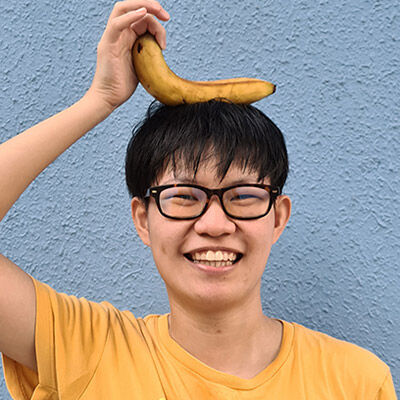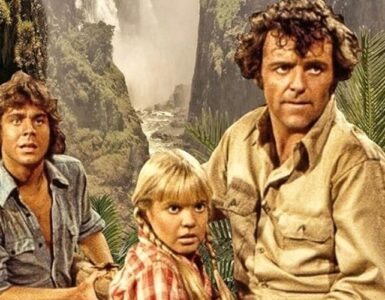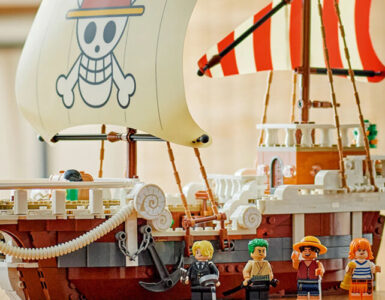This interview has been edited for clarity.
Despite a short-lived presence on the small screen, Michael Dante DiMartino and Bryan Konietzko’s Avatar: The Last Airbender (2005 to 2008) pushed the boundaries of Western animation, becoming a bold, unstoppable force that challenged conventions, with its Asian and Arctic-flavoured world steeped in nuanced characterisation, art direction, and thematic exploration.
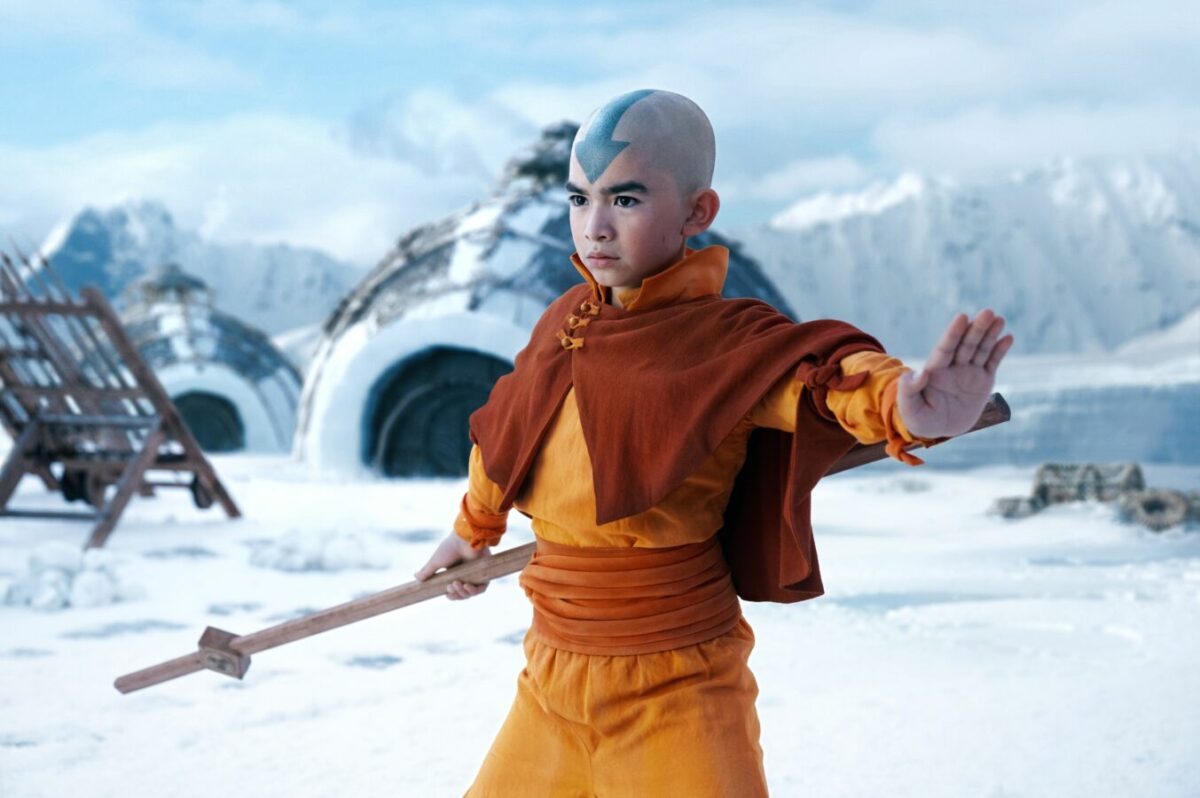
The three-season series depicts a world divided into four nations, each based on the four elements – the Water Tribes, the Earth Kingdom, the Fire Nation, and the Air Nomads, and in each nation, there are benders who can manipulate the corresponding element of their nation.
The Avatar is the only one with the ability to bend all four elements, and this premise of discovery would later establish the show’s legacy as an animation tour de force and as a beloved classic, one that continues to transcend generations. And just like how the Avatar can pass the torch on to the next reincarnation, Netflix’s live-action adaptation series looks to present a reimagined vision of the original to a new era of audiences.
Suffice to say, no adaptation will find a strong foundation in a direct adaptation, so there will be differences between the original and the upcoming live-action. Sokka’s sexism is getting toned down from the original, with the eight-episode show detailing the genocide of the Airbender tribe and the Fire Nation’s rise to power. Where some things change, others will stay the same, and here, the cultural elements bear the echoes of its progenitor’s influence. The commitment is reflected in the team’s meticulous and thoughtful attention to detail, from architectural to music design.
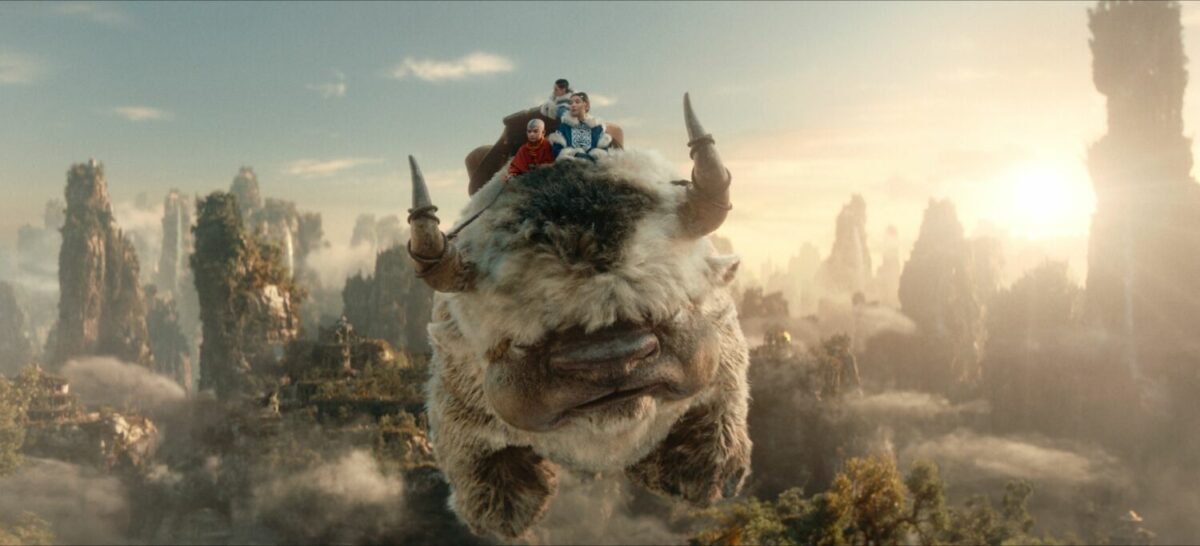
With the Southern Air Temple, for instance, the team drew inspiration from Tibetan and Bhutanese monasteries, while Fire Nation set pieces were modelled after Southeast Asian elements, featuring forged metal as the principal building material, and sculptural details from Thai and Cambodian palaces. The soundtracks, in a similar vein, also pay homage to the pan-Asian and First Nations tradition.
Coupled with elements of the fantasy genre, Avatar: The Last Airbender has evoked comparisons to HBO’s Game of Thrones series – in terms of scope, at least. And before you resist comparing a children’s animated series with one of the most violent book series ever written, think instead of the upcoming adventure that will inherit the rich lore and worldbuilding of the animated show, and eventually translating all of that into a story of epic, motion-picture scale, but for your homes.
“I’ve heard it being described as the ‘Asian Game of Thrones’, and I think that’s an apt description for it,” shares Paul Sun-Hyung Lee in a group interview with regional media. “The stakes are high. The world is rich and derives inspiration from all the different cultures in Asia, so you have proper representation for the first time for this adaptation of the show.”
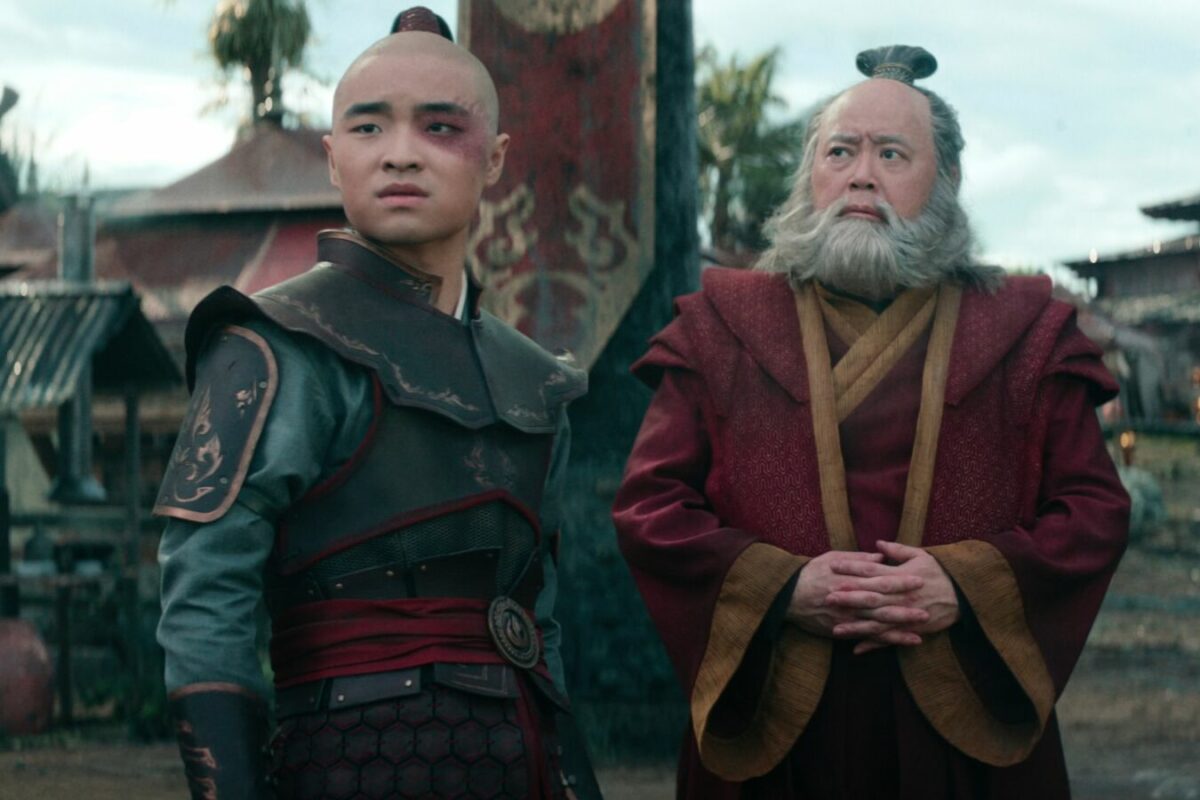
“You cannot help but be inspired by it as an Asian performer, and to see the casting board filled with faces of young and old talent who look like me — I almost cried, because it’s so powerful,” the industry veteran adds earnestly.
There is weight to these words, especially coming from the Kim’s Convenience star. The Canadian sitcom, which centered on the Korean-Canadian Kim Family and their convenience store business in Toronto, was a big deal when it premiered in 2016, as it featured predominantly Asian casting in a Canadian production. Alongside Crazy Rich Asians and American sitcom Fresh Off The Boat, it led the Asian wave in 2018, with Lee — who cited the two works himself — highlighting its impact on the portrayal of minority representation in cinema.
“Kim’s was such a monumental moment for me, because the top five or six characters were all Asian, and I never thought I would live the day to see that,” the Korean-Canadian actor says. “And I thought, ‘These are heady times, because years ago when I first started out, this would never have been heard of; we never would have driven the narrative.’ Then, a show like Avatar comes along, and the scope of it is so much more.”
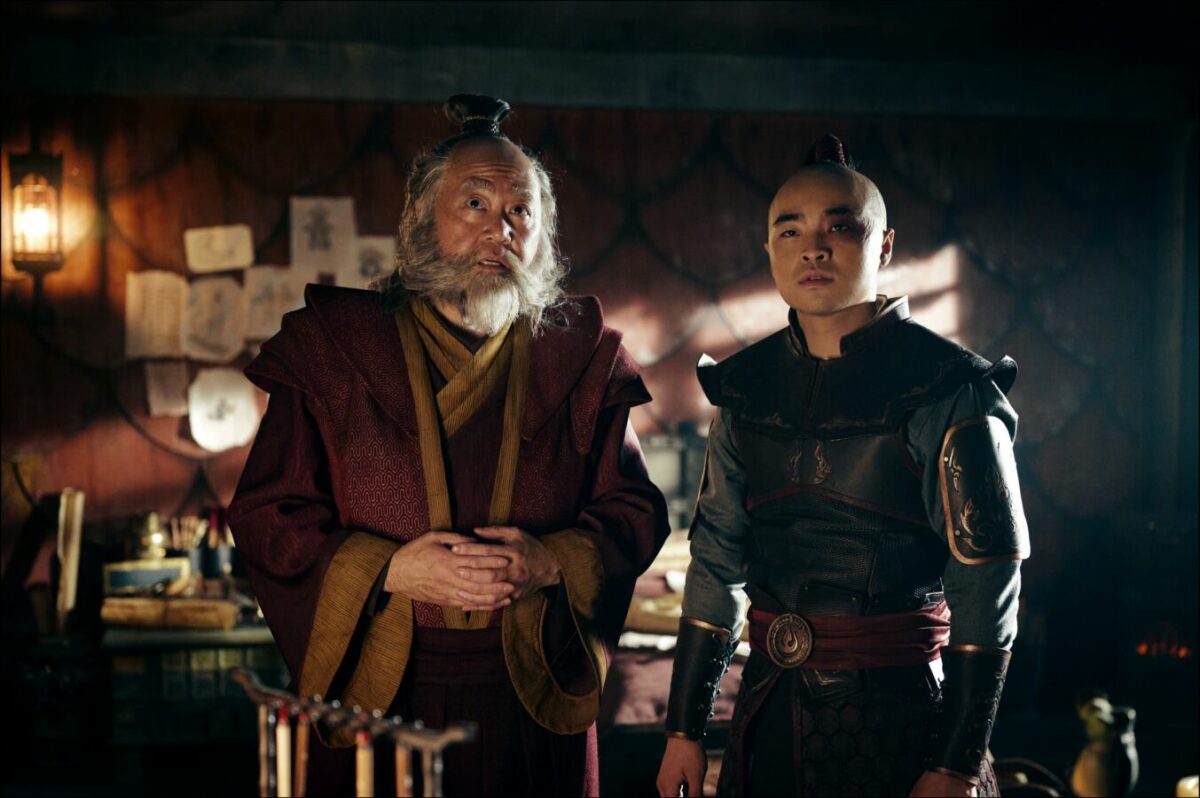
In this second live-action adaptation (fans don’t really acknowledge the first because it was so bad), he plays the affable, wise Iroh, uncle of and sort-of surrogate father to Zuko (Dallas Liu, PEN15). But the dynamic isn’t just confined to reel life; off the screen, the actor also developed a mentor-mentee-like bond with the main cast, who are significantly younger and new to the craft. At the time of casting, Gordon Cormier (Aang) was 11 and Kiawentiio (Katara), 14. Ian Ousley, who plays Sokka, was around 18 years of age, with Liu coming in at around 19. A father of two, Lee’s nurturing instinct naturally kicked in during the filming process.
The 51-year-old admits with a laugh, “Initially, you look at the call sheet and go, ‘Ugh, it’s four kids, and then there’s me, I’m the old guy – is Uncle Iroh the babysitter, I don’t know’.” A pause, then, “But they are professionals through and through, each of them supremely talented and driven. All of them came to work, but they all had fun, and it was so refreshing to see them find joy in the work.”
Recounting his mentoring duties, Lee details how he would make himself available to any of them if they ever wanted to chat. With Liu, whom he shared the most scenes with, it was dishing out advice and talking about the little things. Being around Cormier, meanwhile, meant casual chats and goofing off – something he does often, and had tapped into for his portrayal of Iroh.
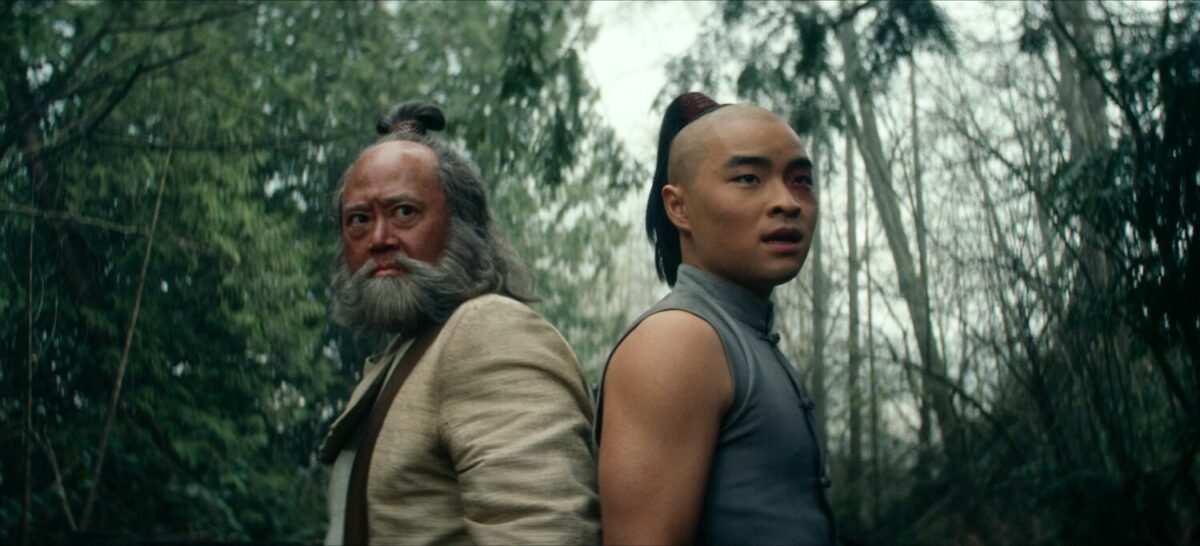
“I’m a goof in real life anyway, so it’s fun to draw on that and observe other people,” divulges Lee. “I like to see what makes people laugh, and maybe play with that a little bit, and so with Dallas, it was a joy to play with him on that level too.”
The blood ties may only work in the context of their fictional roles, but a different kind of blood flows through the veins of Netflix’s Avatar: The Last Airbender: lineage. The live-action adaptation features an Asian American and Native Hawaiian/Pacific Islander (AANHPI), Indigenous, and Asian-Pacific Islander casting that also spans other minority groups, which reinforces its culturally diverse origins. Cormier is of French and Filipino descent; Liu, of Chinese-Indonesian descent. Kiawentiio, meanwhile, hails from the First Nations family of Mohawk.
Beyond the main cast, the mixed lineage bleeds into side roles, which includes Daniel Dae Kim, who portrays Ozai, Elizabeth Yu (Azula), Ken Leung (General Zhao), Tamlyn Tomita (Yukari, Suki’s mother), and even fellow Singaporean Lim Kay Siu (Gyatso), among others. It’s a celebration of how far representation has come, with Lee exhibiting optimism and excitement for the future of Asian cinema.
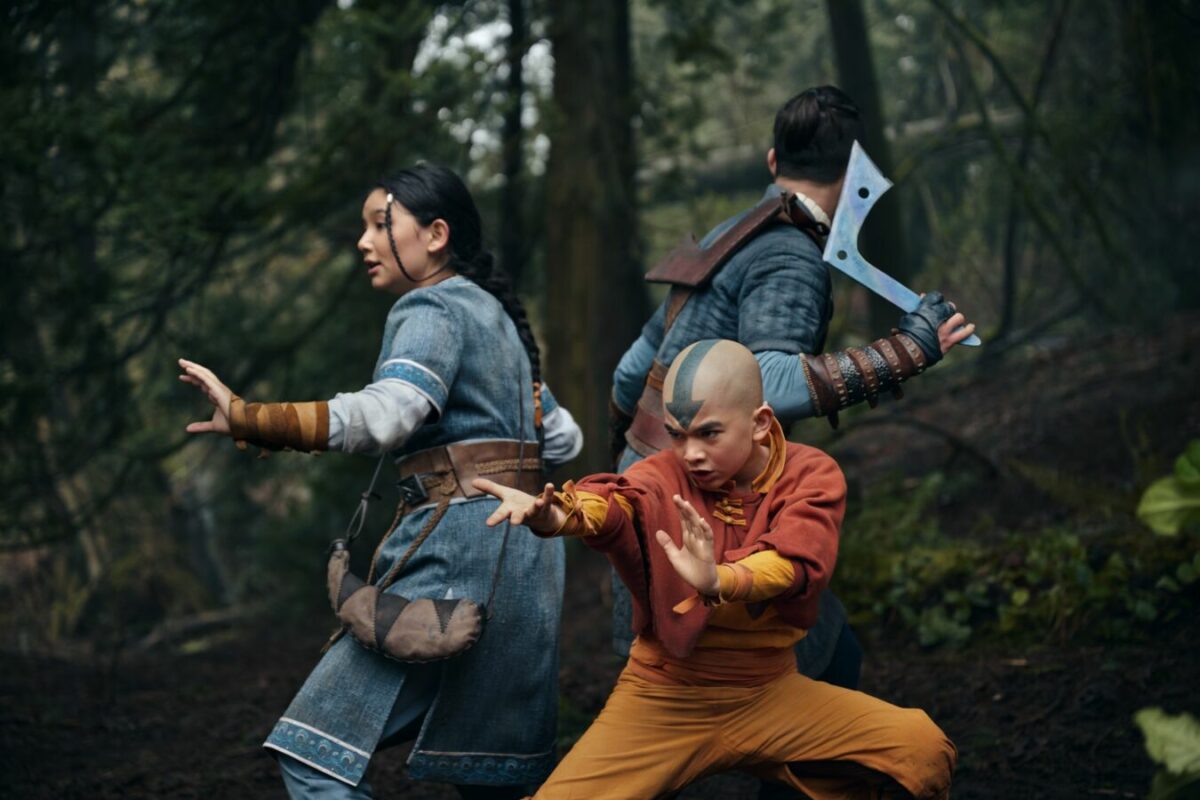
“This is a show that’s going to inspire that next generation of Asian artists in front of and behind the camera… It’s heady stuff, and it really, really bodes well that instead of being a trend, this is an actual movement. I think this will be great for all our communities and cultures,” enthuses the actor.
Avatar: The Last Airbender premieres 22 February on Netflix.

